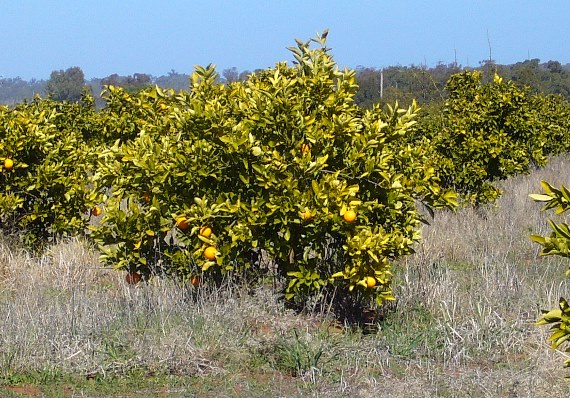
Neglected citrus orchards: NSW Biosecurity Act for citrus
August 2017
The NSW Biosecurity Act 2015 provides a modern and effective approach to managing biosecurity in NSW. It will increase efficiency and decrease regulation in responding to biosecurity risks. The legislation provides a streamlined statutory framework to protect the NSW economy, environment and community from the negative impacts of pests, diseases and weeds.

The regulation has been developed in consultation with industry, the community and government partners to make sure we have a regulatory framework that can be used effectively to respond to, and manage, biosecurity risks.
Biosecurity risks that affect production can now be better managed. The general biosecurity duty requires all property owners to take all practical action to prevent, eliminate and minimise any biosecurity risks. For example, if a property such as a neglected orchard harbours invasive weeds or carries extremely high levels of pests or diseases, then all practical steps must be taken to make sure that these biosecurity risks are not affecting the productivity of the neighbouring properties.
After giving notification, a NSW DPI compliance officer can inspect the property to determine the risks posed by the neglected orchard. The compliance officer will work through mitigation strategies with the owner with the aim of entering into a voluntary undertaking. If no agreement can be reached, then an individual biosecurity direction can be issued to make sure that the mitigation work is done. If the owner chooses not to manage the invasive pest, weed or disease, then the Act gives the NSW Government authority to have a contractor do the pest management works, the cost of which will be borne by the owner. This would be considered only in the most severe of circumstances; hopefully, in most cases, the owner of the neglected property will act on the undertaking or direction.
The broad objectives for biosecurity in NSW are to manage the biosecurity risks posed by animal and plant pests and diseases, weeds and contaminants by:
- preventing the entry of these threats into NSW
- quickly finding, containing and eradicating any new threats that have entered
- effectively minimising the impacts of those pests, diseases, weeds and contaminants that can’t be eradicated through robust management.
The Biosecurity Act 2015 provides a flexible and responsive statutory framework to help achieve these objectives for the benefit of the NSW economy, environment and community.
For more information see NSW DPI’s Abandoned and neglected horticultural enterprises fact sheet. Alternatively, contact Domestic quarantine on 1800 084 881 or email quarantine@dpi.nsw.gov.au or fill out the online General enquiry form in the Report a biosecurity risk section of the NSW DPI Biosecurity & food safety website.

